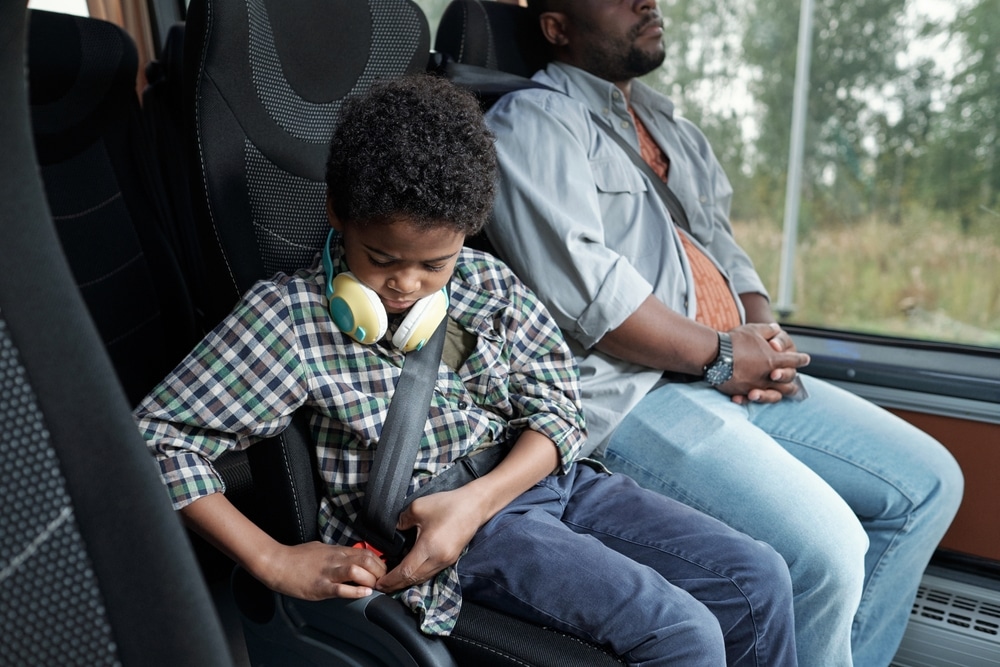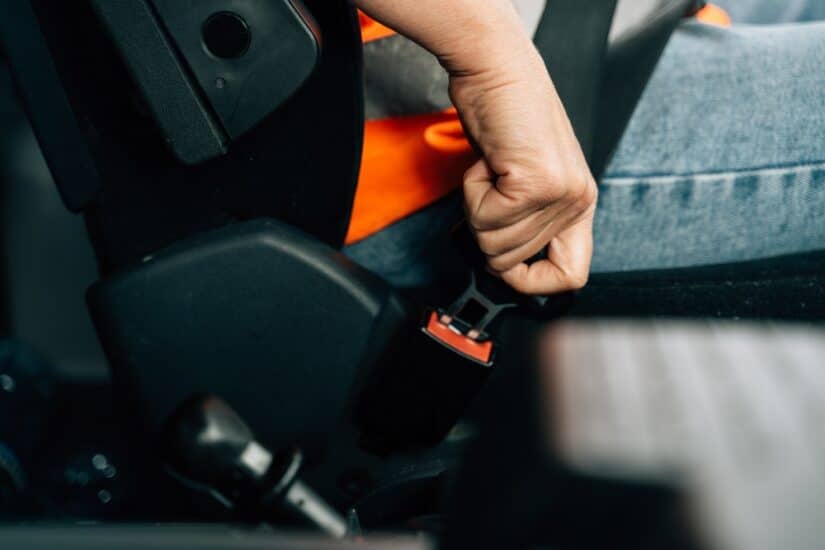Where’s the Safest Seat in Your Car?
By Ben Gobel on September 10, 2024

Car safety is a paramount concern for all drivers and passengers. Whether you’re driving to work, taking a road trip, or just running errands, knowing where the safest seat in your car is can make a big difference. It’s not just about buckling up; it’s about making informed choices that can protect you and your loved ones in the event of an accident. Let’s explore how you can maximize safety for everyone in your vehicle.
Car Safety Basics
Common Car Seat Safety Tips
Car safety begins with some fundamental practices that every driver and passenger should follow. Always wear your seat belt, regardless of where you are seated in the car. Ensure that all passengers are also buckled up. Avoid distractions while driving, such as using your phone or eating. Regularly maintain your vehicle to ensure that all safety features, such as brakes and lights, are functioning correctly.
The Role of Seat Belts and Airbags
Seat belts and airbags are critical components of car safety. Seat belts help to keep occupants securely in their seats during a collision, reducing the risk of injury. Airbags provide a cushion that helps to protect the head and upper body from striking the interior of the car. Together, these features significantly reduce the risk of severe injury or death in the event of an accident.
The Safest Seat in a Car
Research and statistics consistently show that the rear middle seat is the safest in a car. According to a study by the University of Buffalo, passengers in the rear middle seat are 25% less likely to die in a crash compared to those in other seats. This seat is furthest from any potential impact points, providing an additional buffer during a collision. While it may be the least desirable seat in the car, the middle seat is the best seat for car safety.
Why the Rear Middle Seat is Considered the Safest
The rear middle seat is considered the safest for several reasons. Firstly, it is the furthest from the sides of the car, which are common points of impact in side collisions. Secondly, it provides the most distance from the front and rear of the vehicle, offering additional protection in head-on and rear-end collisions. Lastly, the rear middle seat often has a three-point seat belt, which provides better restraint compared to a lap belt.
Factors Influencing Safety in Car Seats
Impact of Car Design and Technology on Safety
Car design and technology play a significant role in passenger safety, and modern cars are equipped with advanced safety features such as electronic stability control, anti-lock brakes, and advanced airbag systems. These features work together to prevent accidents and protect occupants when a collision occurs. A car’s structural design, including crumple zones and reinforced frames, also contributes to overall safety.
Car Type
The type of car you drive can influence the safety of different seating positions. For example, SUVs generally have a higher center of gravity, which can make them more prone to rollovers. In contrast, sedans typically have a lower center of gravity, which can provide better stability. Regardless of the car type, the rear middle seat remains one of the safest positions due to its central location.
Safety for Children and Infants
Optimal Seating Positions for Children and Infants
Children and infants require special consideration when it comes to car safety. The rear middle seat is also the safest position for children, as it provides the most protection in the event of a collision. Infants should always be placed in a rear-facing car seat in the back seat, as this position offers the best protection for their developing bodies. Always practice rear seat safety when riding in a car with an infant.
The Importance of Proper Car Seats and Restraints
Using the correct car seat and restraints is crucial for child safety. Ensure that car seats are appropriate for the child’s age, weight, and height and that they are installed correctly. Follow the manufacturer’s instructions and guidelines to ensure that the car seat is securely fastened and that the child is appropriately restrained.

How to Ensure Your Car is as Safe as Possible
To maximize car safety, regularly inspect and maintain your vehicle. Check that all safety features, such as seat belts, airbags, and brakes, are in good working condition. Keep your tires properly inflated and replace them when the tread is worn. Avoid overloading your vehicle, as this can affect handling and braking. Ensure that your headlights and taillights are functioning correctly, and replace windshield wipers as needed to maintain visibility in adverse weather conditions. Regular maintenance checks can prevent unexpected failures and keep your car running safely.
Legal Considerations in Case of an Accident
In the event of an accident, you need to understand your legal rights and responsibilities. Always report the accident to the police and your insurance company. Gather evidence, like photos and witness statements, to support your claim. Consult with a personal injury attorney to understand your options and ensure that you receive fair compensation for any injuries or damages. Keep detailed records of medical treatments, repair costs, and any other expenses related to the accident. This documentation will be hugely necessary in building a solid case and securing the compensation you deserve. Taking these steps can help protect your rights and facilitate a smoother recovery process.
If You’ve Been Injured in a Car Accident, Contact Our Personal Injury Attorneys Today
Choosing the safest seat in your car and following car safety practices can significantly reduce the risk of injury in the event of an accident. The rear middle seat is consistently shown to be the safest position, offering the most protection from potential impacts. By understanding car safety basics, using proper restraints for children, and maintaining your vehicle, you can enhance the safety of all occupants. If you are involved in an accident, seek legal guidance from the car accident lawyers at Ogg, Murphy, and Perkosky. We offer a free, no-obligation consultation. Call us today at 412-471-8500 to discuss the details of your case.
